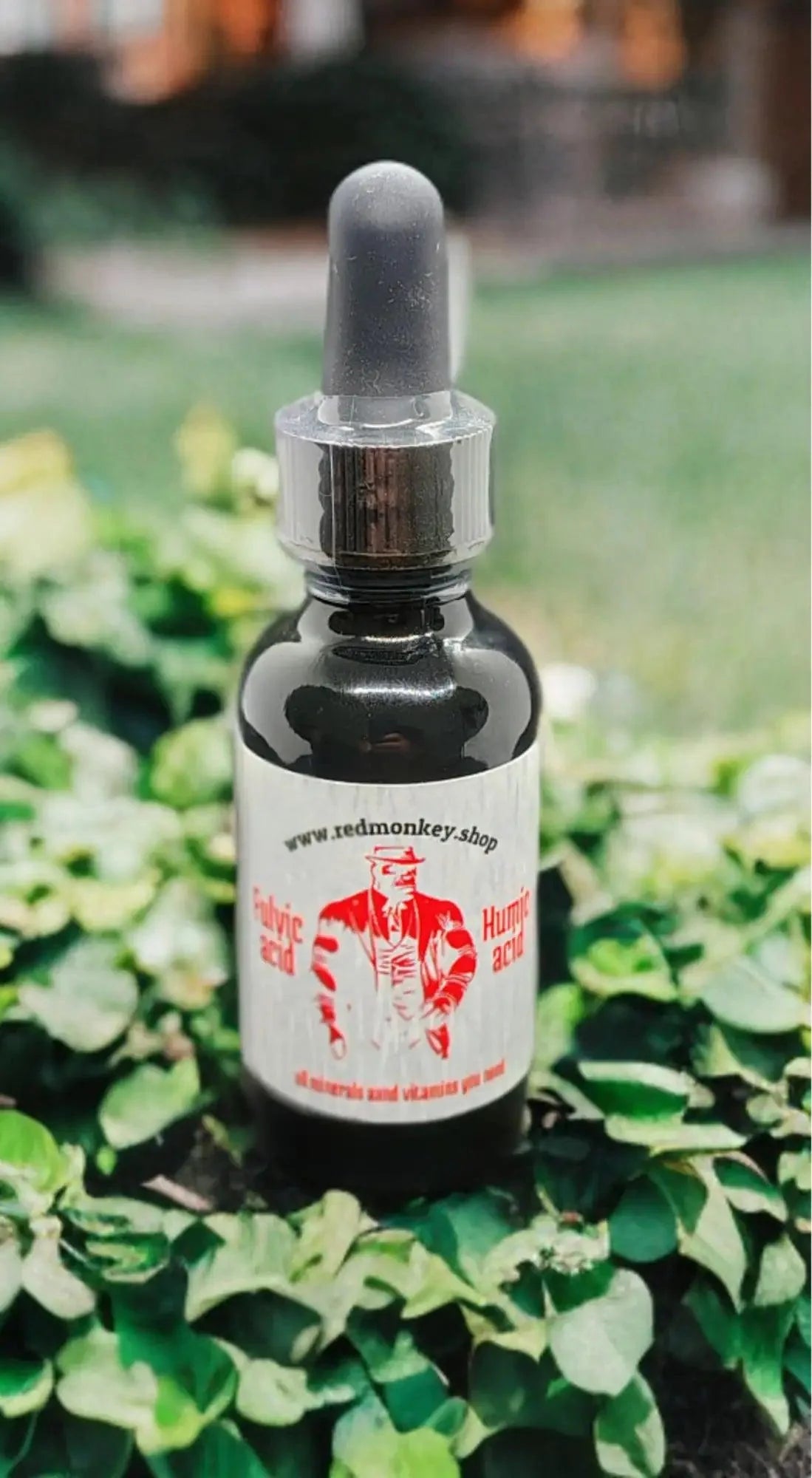
The Hidden Superpower of Fulvic Acid: A Deep Dive into Nature’s Elixir
Imagine a single compound that supercharges your energy, detoxifies your body, revitalizes your skin, and even cultivates stronger plants—all while being entirely natural. Sounds too good to be true? Enter fulvic acid, a humble yet incredibly powerful substance derived from the heart of the Earth, hailed as one of nature’s best-kept secrets.
In this blog, we’re delving deep into the astonishing science and multifaceted benefits of fulvic acid—an ancient elixir now making waves in health, wellness, and sustainability. Prepare to unlock the hidden superpower that lies beneath our feet!
What is Fulvic Acid? The Secret Beneath Our Feet
Fulvic acid is a miraculous byproduct of millions of years of organic decomposition. Found in rich soil, nutrient-dense peat, and pristine water sources, it serves as nature's very own multivitamin—overflowing with trace minerals, antioxidants, and life-sustaining compounds. What makes it so special? Its diminutive molecular size allows it to operate on a cellular level, delivering essential nutrients precisely where they’re needed most, creating a harmonious balance that supports vitality.
Why is Fulvic Acid a Game-Changer for Your Health?
Here’s where fulvic acid truly shines, showcasing benefits that sound straight out of a superhero movie—it’s not just one benefit; it’s an arsenal of them.
1. Your Body’s Ultimate Absorption Booster
Fulvic acid acts like a molecular taxi, effortlessly picking up vital nutrients like magnesium, zinc, and iron, and delivering them directly to your cells. Every bite of food or supplement becomes exponentially more effective—providing you with incredible value for your nutritional investments.
2. The Gut’s Best Friend
Are you grappling with digestive issues? Fulvic acid can fortify your gut lining and nurture a balanced microbiome. It works wonders soothing conditions such as leaky gut syndrome and irritable bowel issues, ushering in a happier and healthier digestive experience.
3. Detox Like a Pro
In our polluted world, heavy metals, pesticides, and toxins abound. Fulvic acid functions as a natural detoxifier, binding with these harmful substances and flushing them right out of your system, leaving you feeling lighter, brighter, and full of vibrant energy.
4. Brain Food for Enhanced Cognition
Emerging studies suggest fulvic acid may hold the key to preventing Alzheimer’s disease by inhibiting the formation of detrimental tau proteins. With its brain-boosting properties, this compound could become your secret ally in achieving sharper focus and heightened mental clarity.
5. Anti-Aging & Immunity Boost
Not only does fulvic acid contribute to your overall health, but it also promotes a glowing exterior. By reducing inflammation and enhancing immune response, it fights off illness while ensuring your skin remains youthful and radiant.
The Miracle Worker in Agriculture
Fulvic acid doesn’t stop at transforming human health; it’s also an extraordinary force for agriculture. Picture soil infused with life energy, empowering crops to endure droughts, thrive in challenging conditions, and even diminish the reliance on chemical fertilizers. That’s the magic of fulvic acid.
Supercharged Growth: It enhances nutrient bioavailability for plants, leading to vibrantly healthy crops.
Stress Resilience: Plants treated with fulvic acid excel in withstanding stress from pests, unfavorable weather, and diseases.
Soil Whisperer: It rejuvenates soil health by amplifying microbial activity and enriching nutrient content.
Why Your Skin Craves Fulvic Acid
Skincare enthusiasts in Philadelphia, listen up: fulvic acid is the unsung hero your beauty routine has been longing for. Its powerful anti-inflammatory and antimicrobial properties make it a formidable opponent against acne, eczema, and psoriasis. But the benefits don’t end there—it sparks collagen production, enhancing elasticity and reducing fine lines for an enviable, youthful glow.
Is Fulvic Acid Safe? The Bottom Line
Fulvic acid is natural and generally considered safe, but quality does matter. Always opt for reputable sources, and start with small doses to gauge your body’s response. And, as always, consult a healthcare professional if in doubt.
A Future Built on Fulvic Acid?
With its stunning versatility, fulvic acid might just be the key to a healthier, more sustainable planet. Whether it’s supercharging your body, elevating your skincare routine, or revolutionizing agricultural practices, this unassuming compound reveals that sometimes the finest solutions come straight from Mother Earth. So, why not tap into the power of this ancient elixir today? The benefits are awaiting discovery—right beneath your feet.
Are you ready to explore fulvic acid and all it can do for you? Let us guide you in uncovering premium options for your health, skincare, or sustainable living goals!
Certainly! Here are several studies and articles that explore the various aspects and potential benefits of fulvic acid:
1. Therapeutic Potential of Fulvic Acid in Chronic Inflammatory Diseases
This study examines the anti-inflammatory properties of fulvic acid and its potential therapeutic applications in chronic inflammatory conditions.
2. A Comprehensive Toxicological Assessment of Fulvic Acid
This research provides an in-depth toxicological evaluation of fulvic acid, discussing its safety profile and potential health implications.
3. Fulvic Acid: Benefits, Safety, Side Effects, and Dosage
An article summarizing various studies on fulvic acid, highlighting its health benefits, safety considerations, and recommended dosages.
4. Fulvic Acid Skin Care: Uses, Benefits, and More
This piece explores the application of fulvic acid in skincare, supported by research on its efficacy in managing inflammatory skin conditions.
5. Fulvic Acid – A Natural and Multifaceted Approach to the Management of Inflammatory Dermatosis
A study discussing the role of fulvic acid in modulating the immune system and its potential in treating inflammatory skin disorders.
6. Applying Fulvic Acid for Sediment Metals Remediation
Research focusing on the environmental applications of fulvic acid, particularly in the remediation of metal-contaminated sediments.
7. Sorption of Eu(III) on Attapulgite Studied by Batch, XPS, and EXAFS Techniques
This study investigates the interaction between fulvic acid and minerals, providing insights into its vital role in environmental chemistry.
These resources offer a comprehensive look at the current research on fulvic acid, showcasing its health benefits, safety, skincare applications, and significant environmental impact.
